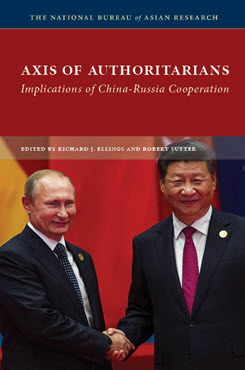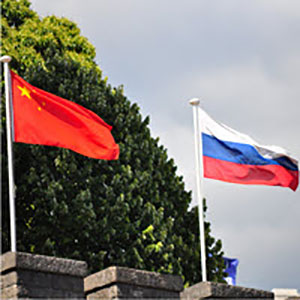China-Russia Relations in Energy, Trade, and Finance
Strategic Implications and Opportunities for U.S. Policy
This chapter analyzes Sino-Russian economic relations by exploring trade, energy, and finance in bilateral ties; assessing the strategic import of economic projects; and discussing the strategic implications for U.S. policy in the region.
EXECUTIVE SUMMARY
MAIN ARGUMENT
The strategic partnership between China and Russia is vital for both sides as U.S.-Russia relations have deteriorated and U.S.-China trade ties have frayed. Beijing and Moscow oppose U.S. hegemony and share an authoritarian, neomercantilist vision that seeks to reshape the liberal international order. Russia, however, does not support China unconditionally; it is following a complex policy of aligning politically with Beijing to balance the U.S., while hedging in pursuit of its economic interests. China-Russia economic relations are complementary but unbalanced, with Beijing holding a dominant position in most dimensions. U.S.-China economic interdependence provides Washington with considerable leverage, but this advantage could be squandered through ill-considered policies that drive Beijing and Moscow closer together. China’s leverage over the U.S. is augmented by its economic relations with Russia. This influence will grow as the U.S. government pursues a trade war with China while shunning multilateral forums like the World Trade Organization and the Trans-Pacific Partnership.
POLICY IMPLICATIONS
- The U.S. should recognize the competitive dimension in Sino-Russian relations and avoid actions that encourage further cooperation against U.S. interests.
- Confrontational economic policies toward U.S. allies and partners in the Asia-Pacific will likely create openings for China, with Russian backing, to develop new economic mechanisms and promote an illiberal order that reduces U.S. influence.
- Russia’s energy turn away from Europe toward the Pacific enhances China’s energy security, but also diversifies supply for U.S. allies and so does not negatively affect U.S. interests.
Charles E. Ziegler is Professor of Political Science and University Scholar at the University of Louisville.
The author is grateful to Robert Sutter, Brian Franchell, and NBR’s anonymous reviewers for their helpful comments on an earlier version of the manuscript. He also wishes to thank NBR intern Ian McManus for providing research assistance on trade data.



